|
|
| |
| Padma Perfumery Works Replenish your senses! |
| Rose Incense |
White Musk Incense |
Al Oudh Incense |
Sheik Al Arab Blue |
Jasmine Incense |
|
|
|
|
|
 |
 |
 |
 |
 |
|
|
|
Jasmine Essential Oil
Jasmine grandiflorum, from which jasmine essential oil is mostly extracted has every good reason to be hailed as "the king of  flowers". One of the oldest and the most expensive of all scented botanicals, this exotic and highly volatile oil has been used widely indifferent healing techniques including traditional Chinese medicine and the age-old Indian system of Ayurveda. Its curative benefits makes it an ideal carrier oil in aromatherapy practices even today, where it is either used alone or in combination with sweet orange, sandalwood and vetiver. Sublime yet intriguing, jasmine essential oil is also the base note of choice for many contemporary perfumes. Want to know more on jasmine essential oil? Read on. flowers". One of the oldest and the most expensive of all scented botanicals, this exotic and highly volatile oil has been used widely indifferent healing techniques including traditional Chinese medicine and the age-old Indian system of Ayurveda. Its curative benefits makes it an ideal carrier oil in aromatherapy practices even today, where it is either used alone or in combination with sweet orange, sandalwood and vetiver. Sublime yet intriguing, jasmine essential oil is also the base note of choice for many contemporary perfumes. Want to know more on jasmine essential oil? Read on.
Botanical Information
Jasmine is a woody, perennial climber with green stems and pinnate leaves. This deciduous shrub grows to an average height of 15 meters, and is mainly cultivated for its strongly scented, white summer flowers that are borne in clusters. These fragile white-colored jasmine blooms remain tightly closed during the morning, which is when they should be ideally plucked and processed into the volatile jasmine essential oil.
Botanical Classification
- Family: Oleaceae
- Genus and specie: Jasminum grandiflorum
- Other names: Royal jasmine, Spanish or Catalonian jasmine as well as Jati.
Basic Components
- Benzoic acid
- Benzaldehyde
- Benzyl acetate
- Benzyl acetate
- Benzyl alcohol
- Indole
- Benzyl benzoate
 Cis-3-hexenyl benzoate Cis-3-hexenyl benzoate- Cis-jasmone
- Ceosol
- Eugenol
- Farnesol
- Geraniol
- Linalool
- Methyl anthranilate
- P-cresol
- Nerol
- Gamma terpineol
- Nerolidol
- Isohytol
- Phytol etc.
Uses & Benefits of Jasmine Essential Oil
- Though scientifically not established yet, jasmine essential oil is still considered as one of the best known aphrodisiacs. People in the Indian Subcontinent decorate the bride and sprinkle and spray jasmine flowers and mists on the room of newlyweds as the seductive jasmine fragrance is believed to incite romantic feelings and control sexual problems like premature ejaculation and frigidity.
- Long been regarded as a "woman's oil", jasmine oil is massaged into the abdomen of women to ease labor pain, provide
 relief from irregular and painful periods, push back untimely menopause and maintain proper functioning of the uterus. It is also considered as good for lactating mothers as it stimulates and increases milk secretions from breasts. relief from irregular and painful periods, push back untimely menopause and maintain proper functioning of the uterus. It is also considered as good for lactating mothers as it stimulates and increases milk secretions from breasts.
- Long been regarded as a "woman's oil", jasmine oil is massaged into the abdomen of women to ease labor pain, provide relief from irregular and painful periods, push back untimely menopause and maintain proper functioning of the uterus. It is also considered as good for lactating mothers as it stimulates and increases milk secretions from breasts.
- Jasmine oil as a natural antidepressant and sedative is also applied alone or in combination with other oils in different aromatherapy procedures. It is especially used to generate positive and constructive emotions, and dispel negative thoughts, anxiety, stress, annoyance and anger.
- Jasmine oil also has beneficial effects on the skin. All skin types including dry, sensitive, oily and aging skins can be treated with it. Its moisturizing action keeps dry and aging skins smooth and radiant, and its astringent and anti bacterial nature is extremely good for oily skins prone to acne and zits.
|
|
|


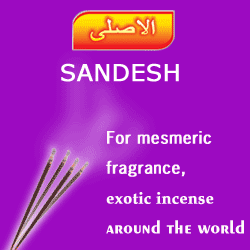

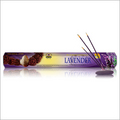
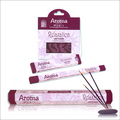
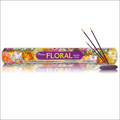
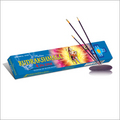
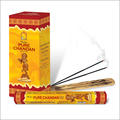
 flowers". One of the oldest and the most expensive of all scented botanicals, this exotic and highly volatile oil has been used widely indifferent healing techniques including traditional Chinese medicine and the age-old Indian system of Ayurveda. Its curative benefits makes it an ideal carrier oil in aromatherapy practices even today, where it is either used alone or in combination with sweet orange, sandalwood and vetiver. Sublime yet intriguing, jasmine essential oil is also the base note of choice for many contemporary perfumes. Want to know more on jasmine essential oil? Read on.
flowers". One of the oldest and the most expensive of all scented botanicals, this exotic and highly volatile oil has been used widely indifferent healing techniques including traditional Chinese medicine and the age-old Indian system of Ayurveda. Its curative benefits makes it an ideal carrier oil in aromatherapy practices even today, where it is either used alone or in combination with sweet orange, sandalwood and vetiver. Sublime yet intriguing, jasmine essential oil is also the base note of choice for many contemporary perfumes. Want to know more on jasmine essential oil? Read on.  Cis-3-hexenyl benzoate
Cis-3-hexenyl benzoate relief from irregular and painful periods, push back untimely menopause and maintain proper functioning of the uterus. It is also considered as good for lactating mothers as it stimulates and increases milk secretions from breasts.
relief from irregular and painful periods, push back untimely menopause and maintain proper functioning of the uterus. It is also considered as good for lactating mothers as it stimulates and increases milk secretions from breasts. 